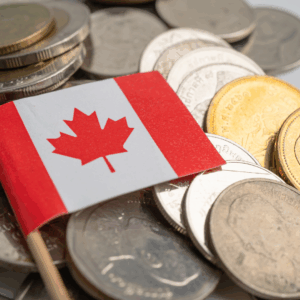“Smart Money Moves For College Students: Discover important money management tips to manage your finances effectively.”
This article is tailored for college students who may face financial challenges and need support to help them understand their economic struggles.
For many students, college is when they receive a wake-up call about their finances. It’s like, “Oh My God!!!” I don’t have enough money to get through the school semester!
Learning money management at this stage of life can prepare you for financial success in the years to come.
I’ll explore essential financial considerations for students returning to college or university.
Students should be well prepared in several critical financial areas, from budgeting to student loans.
Let’s ensure you’re well-prepared for this exciting academic journey, avoiding stress, saving for the future, and even having some extra fun along the way.
Smart Money Moves For College Students
1. Budgeting
A budget is like a plan for your money. It helps you track what comes in ( like an allowance or a part-time job) and what goes out (like tuition, textbooks, food, or clothes).
Budgeting is important for managing your spending and maintaining financial stability.
A simple way to budget is to use the 50/30/20 rule:
- 50% for needs (school supplies, transportation, phone bill).
- 30% for wants (movies, treats, hobbies).
- 20% for savings (for future goals, such as college or a new laptop).
- You may also want to learn to use a free budgeting app, such as Mint.
Basics of Banking: Learn how banking functions, including checking and savings accounts, debit cards, and online banking. Learn about fees, interest rates, and managing your accounts.
The importance of Saving: Begin to save money; even small amounts help. Emergency funds can help cover unexpected expenses.
Avoiding Credit Card Pitfalls: If you have a credit card, use it responsibly. Pay off the balance in full to avoid high interest charges. Do not overspend or incur debt.
Building Good Credit: Understand Your Credit Scores and Their Impact on Your Future Finances. Pay bills, manage your credit card debts, and avoid excessive debt.
Filling the FAFSA: Complete the Free Application for Federal Student Aid (FAFSA) to determine federal aid, grants, and loan eligibility. It’s essential for accessing financial assistance.
Understanding Student Loans: Consider federal and private options if you need loans. Learn about interest rates, repayment terms, and the impact borrowing has on your future finances.
Being financially savvy is important for making wise choices in college. Learn more about managing your money, and seek out workshops, tools, and money-learning courses.
2. Find Ways To Earn Money
You don’t have to wait for an allowance if you want more money! If you receive an allowance, what can I say? You’re fortunate, because many students have to fend for themselves. There are lots of ways students can earn extra cash, like:
- Tutoring younger students: If you excel in a subject, consider helping others for a fee.
- Selling things online: Unused clothes, books, or anything else that you don’t need anymore.
- Freelancing: If you like writing, graphic design, or coding, you can work online.
- Part-time jobs: Many stores, restaurants, and offices hire students for part-time work.
Always save part of what you earn, so you’re not broke at the end of the month.
3. Save Before You Spend
Spending money as soon as you get it is tempting, but bright students save first! Make it a habit to always put money aside. By doing this, you’ll build good money habits.
The trick is to pay yourself first. Each time you receive money, set aside some of it for savings before spending the rest.
4. Use Student Discounts
Did you know students get special deals? Many places, like restaurants and websites, offer student discounts on things like:
- Movies & entertainment
- Software & technology, like laptops and Microsoft Office.
- Public transportation
- Clothing stores
5. Be Smart About Credit Cards
Credit cards can be dangerous if not used wisely. Many students get into debt because they spend money they don’t have. If you get a credit card, follow these rules:
- Only buy what you can afford to pay off each month.
- Never miss a payment (late fees are expensive).
- Use it to build credit, not for impulse shopping.
- If you don’t need a credit card, consider using cash or a debit card to avoid accumulating debt.
Being smart with money as a student will help you avoid stress and set you up for financial stability. Start small, make a budget, find ways to earn, and save a little at a time.
The better your money habits are, the easier your future will be!
Can I apply for Student loan forgiveness?
I’ll provide separate insights for Canada and the United States, as student loan forgiveness programs differ significantly between the two countries.
Canada does not have a comprehensive student loan forgiveness program, unlike the one recently proposed in the United States. However, some specific programs offer loan forgiveness or repayment assistance:
1. Canada Student Loan Forgiveness for Family Doctors and Nurses: This program offers loan forgiveness to eligible family doctors, family medicine residents, nurse practitioners, and nurses who work in underserved rural or remote communities.
2. Repayment Assistance Plan (RAP): While not forgivable, this plan can reduce payments based on income and family size. In some cases, the government may cover the interest portion of the loan.
3. Severe Permanent Disability Benefit: This program forgives student loans for those with severe permanent disabilities.
4. Provincial Programs: Some provinces offer loan forgiveness programs for specific professions or circumstances.
For Americans: The United States has several federal student loan forgiveness programs:
1. Public Service Loan Forgiveness (PSLF): Forgives the remaining balance on Direct Loans after 120 qualifying monthly payments while working full-time for a qualifying employer.
2. Teacher Loan Forgiveness: This program offers up to $17,500 in forgiveness for teachers who have worked in low-income schools for five consecutive years.
3. Income-Driven Repayment (IDR) Plan Forgiveness: The remaining balance is forgiven after 20-25 years of payments under an IDR plan.
4. Biden Administration’s Student Debt Relief Plan: This plan, which would forgive up to $20,000 in federal student loans for eligible borrowers, is currently on hold due to legal challenges.
5. Close School Discharge, Total and Permanent Disability Discharge, and other specific circumstances may qualify for loan forgiveness.
Please note that eligibility requirements, application processes, and available programs are subject to change.
For the most up-to-date and accurate information, consult the official government websites or speak with a student loan expert in your country.
Check out this article:https://masteringpersonalfinances.com/30-steps-to-save-money-every-month/





